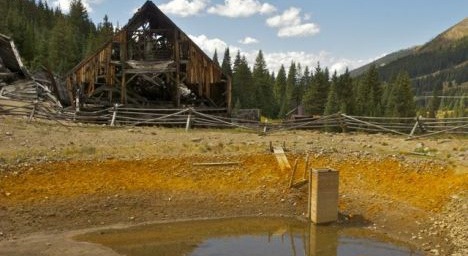
CO-04 (Special Election)
See Full Big Line
(R) Greg Lopez
(R) Trisha Calvarese
90%
10%

President (To Win Colorado)
See Full Big Line
(D) Joe Biden*
(R) Donald Trump
80%
20%↓

CO-01 (Denver)
See Full Big Line
(D) Diana DeGette*
90%

CO-02 (Boulder-ish)
See Full Big Line
(D) Joe Neguse*
90%

CO-03 (West & Southern CO)
See Full Big Line
(D) Adam Frisch
(R) Jeff Hurd
(R) Ron Hanks
40%
30%
20%

CO-04 (Northeast-ish Colorado)
See Full Big Line
(R) Lauren Boebert
(R) Deborah Flora
(R) J. Sonnenberg
30%↑
15%↑
10%↓

CO-05 (Colorado Springs)
See Full Big Line
(R) Dave Williams
(R) Jeff Crank
50%↓
50%↑

CO-06 (Aurora)
See Full Big Line
(D) Jason Crow*
90%

CO-07 (Jefferson County)
See Full Big Line
(D) Brittany Pettersen
85%↑

CO-08 (Northern Colo.)
See Full Big Line
(D) Yadira Caraveo
(R) Gabe Evans
(R) Janak Joshi
60%↑
35%↓
30%↑

State Senate Majority
See Full Big Line
DEMOCRATS
REPUBLICANS
80%
20%

State House Majority
See Full Big Line
DEMOCRATS
REPUBLICANS
95%
5%
 September 30, 2017 01:24 PM UTC
September 30, 2017 01:24 PM UTC 8 Comments
8 Comments
 The curious and questionable expenses don’t stop with tax-funded luxury travel. The nearly $1,000,000 Pruitt has already spent–on a
The curious and questionable expenses don’t stop with tax-funded luxury travel. The nearly $1,000,000 Pruitt has already spent–on a  On the matter of budgets, the proposed Trump budget is a real nightmare for public health and the environment,
On the matter of budgets, the proposed Trump budget is a real nightmare for public health and the environment,  Colorado depends on these
Colorado depends on these  As Colorado towns put out the orange to welcome hunters, the success of the season depends on healthy public lands. But few things
As Colorado towns put out the orange to welcome hunters, the success of the season depends on healthy public lands. But few things 

If only it were just the EPA…
Energy Secretary Perry Requests Federal Rules to Boost Cost Recovery for Coal and Nuclear
It most certainly isn't. I almost wrote on Zinke at Interior, but went with Pruitt. Its a well-populated swamp.
Thanks for the diary and for the reminder to write our Senators about restoring EPA funding. I'd add that it's important to write our Representatives, too. All the Republican congresscritters use the same tired talking points about wanting an "all of the above energy plan," and how much they value our public lands but want "decisions about them made locally, not in DC".
(read: rights sold to the highest bidder who donates to said Congressman).
Per Votesmart.org, Bennet is rated about 75% by environmental groups, Gardner about 20%. The same pattern holds for Republicans vs. Democrats in the House, with Tipton the best of the lot.
I'm saddened by how gutted the EPA website is – all of the hard-won climate data has been scrubbed from the site. Now, all one sees is superfund and "pest" information. It's against the law to actually delete or modify scientific data – but they've made it almost impossible to find for the average lay researcher.
One has to do a specific search for what one wants, i.e., "climate change data for Colorado 1975 – 1995", and it is no longer organized or categorized in a reasonable way.
I understand that most of the hard science databases were put on mirror sites to preserve them.
President Obama's people did that because they saw what was coming. Hopefully, the data can be restored and updated when our long national nightmare is over.
Some states captured and republished the info, try NY. The House has passed its budget resolution.
But don't let that stop anyone from contacting your House Member too. But start with your Senators.
Donald Trump is a MORON and many, if not most, if not all of his believers/followers/concubines are either morons or half-morons.
I hope he gets indicted soon because that's the only thing that will slow him down and force the incredibly hypocritical and cowardly elected R's who support him to take a step back from the ledge which they are pushing our American Democracy over so callously.
I don't think it's either fair or accurate to call the president a moron, Zappy. But if he went back to school, studied really hard, and got lucky on his GED exam, he might work his way up to a moron! For now, he's in the lower ranks of imbeciles.